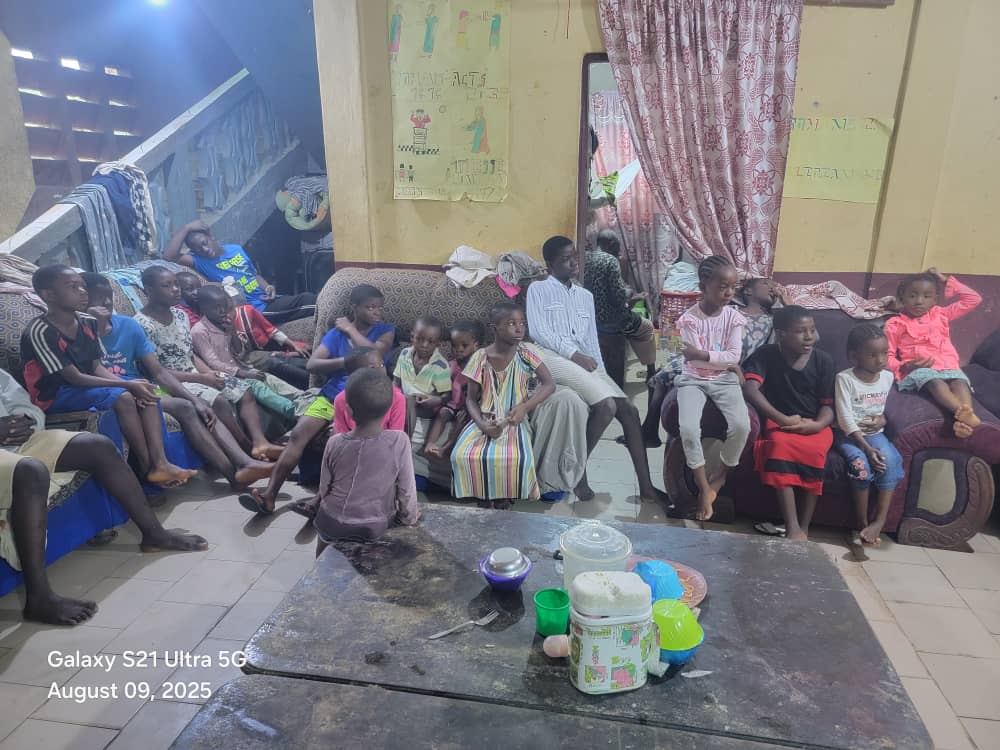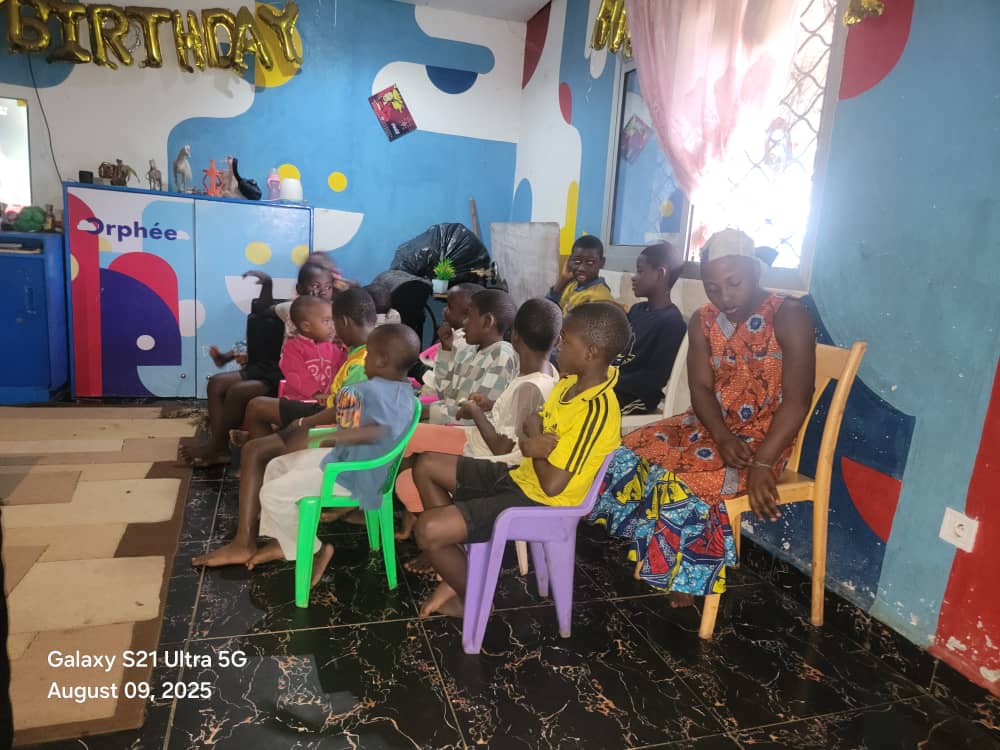Closing a Chapter, Leaving a Legacy

On August 9, 2025, the Green Farmlands team proudly concluded the 4th edition of the Adopt a Garden Project with visits to God’s First Orphanage and Brightland Orphanage, both located in Wotutu, Limbe. This milestone marked more than the end of a project—it signaled a new beginning for over 75 children across these two orphanages.
The project was designed to teach practical gardening skills, improve nutrition, and reduce food costs while instilling self-reliance. At the closing ceremony, we celebrated not just gardens, but transformed lives.
Conversations That Matter
We began the day with the children eagerly sharing their experiences. Topics ranged from what they learned to how they plan to sustain their gardens after our departure.
Their feedback was heartfelt:
“We didn’t just learn how to grow food; we learned how to take care of something and watch it grow. Green Farmlands didn’t just train us—they became family. Your presence every week meant so much to us.”
Brian, Brightland orphanage.
Some testimonials from the children were truly moving:
- Eboh Prince (God’s First Orphanage):
“I learned that before planting, all plastics, papers, and bottles must be removed from the garden and it must be clean. I didn’t know this before.” - Seraphine (God’s First Orphanage):
“I learned how to plant vegetables like okra and green spices, which I never knew how to plant before the project.”
For crops like cabbage, they requested more training sessions because cabbage was completely new in Wotutu—a challenging crop that had never been grown in the area before.
Voices from the Heart
We sat down with Mme Tebo Quinta, the Matron of the God’s First Orphanage in Wotutu Limbe and had a conversation about the project’s impact on the orphanage and here is what she had to say;
‘When the Adopt a Garden Project began, most of our children had never worked on a farm before. This project changed that. They learned how to prepare a garden properly—clearing, cleaning, spraying, and planting. They now know how to grow vegetables like cabbages, green peppers, and other spices, and they took part in everything, from planting to harvesting. Today, they have practical skills they can use for life.”
“Before this project, we spent almost 10,000 francs every day just buying vegetables to feed the children. Thanks to the garden, we grow our own fresh produce, which means we buy less from the market. With the money saved, we can add other nutritious foods like fish, so the children now enjoy more balanced meals. This has made a big difference in their health and diet.”
“One major challenge we faced was roaming animals—fowls, pigs, ducks—that often destroyed our crops, especially fragile ones like cabbage and plantains. The team helped us with nets and ideas for protection, which worked partly, but we still need a more permanent solution like fencing. Even with these challenges, the project turned a once dirty and unused area into a clean, productive garden. It brought pride to our orphanage and gave the children something meaningful to care for. If we can get more seeds and some protective materials, we are ready to continue this work because it has truly changed our lives.”
Impact Metrics at a Glance
Beneficiaries:
~75 children from both orphanages
Inputs Provided:
- Seeds (cabbage, okra, corn, green spices, green pepper);
- Plantain suckers;
- Fertilizers and pesticides.
Outcomes:
- Orphanages reduced daily food costs, enabling funds to be redirected to school supplies, clothing, and healthcare.
- Children enjoyed more balanced diets with fresh vegetables.
- Practical gardening knowledge ensures sustainability beyond the project’s duration.



Behind the Scenes: The Green Farmlands Team
This success story would not be possible without our passionate team and volunteers who work tirelessly to make sure that we use agriculture to support vulnerable communities thrive.
Special thanks to our dedicated partners at the orphanages:
Mme Mado Elangwe – Matron, Brightland Orphanage
Mme Ameg Quinta Teboh – Matron, God’s First Orphanage
Beyond the Project
Thanks to +1 Global Fund, The Roddenberry Foundation, and Echoing Green, this initiative has sown seeds of resilience. It has reduced hunger, promoted self-reliance, and created healthier communities.
This is just the beginning. Together, we can continue to nurture lives, one seed at a time.



